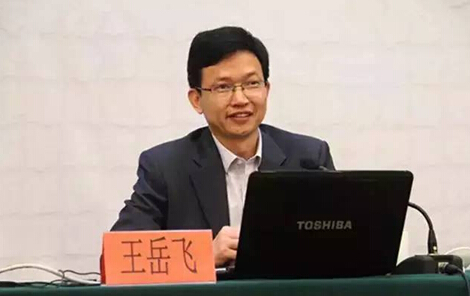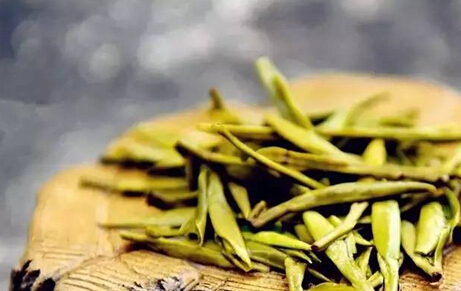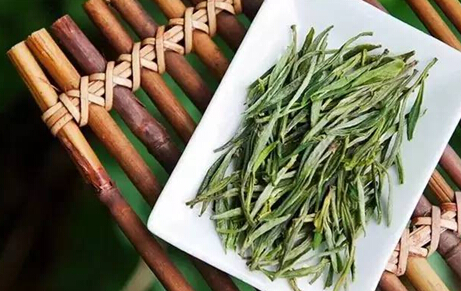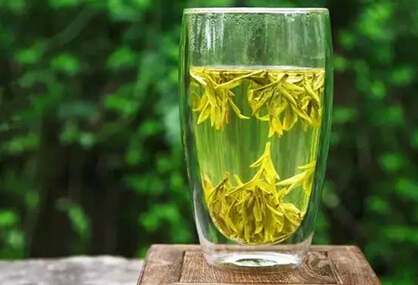About the effects of tea, what have you heard:
Delaying aging? Boosting immunity? Weight loss?
Anti-radiation? Lowering blood pressure? Sobering up?
Tea is the cure for all diseases?
......
Zhejiang University Tea Science PhD Wang Yuefei gave such a lecture. Let’s follow Dr. Wang to verify:

Wang Yuefei, Deputy Dean of the College of Agriculture at Zhejiang University, Deputy Director of the Tea Science Department, PhD supervisor, Tea Science PhD, National Level 1 Tea Taster
Can tea resist radiation?
1 Chinese Tea Polyphenols "Fly" to Japan to Combat Radiation
After the 2011 earthquake and tsunami in Japan, there was widespread panic about nuclear radiation. Across China, a spirit of generosity emerged: places like Guizhou, Fujian, Zhejiang, and many others donated tea to Japan, to embassies, and to overseas Chinese. We also donated a batch of supplies to the Chinese Embassy in Japan, including tea polyphenols and a box of tea candies, which served an anti-radiation purpose.
2 Is Tea Polyphenol the Element in Tea That Resists Radiation?
Experts in tea science and medicine now believe the main reason is its tea polyphenol content. Another reason is the manganese in tea, which is several times, even hundreds of times more abundant than in other plants. The highest manganese content in food is found in seafood like clams, with about 50 milligrams, still less than in tea. It helps combat radiation. Other components like caffeine, theophylline, theobromine, theanine, polysaccharides, flavonoids, and carotenoids also contribute.
3 Are Industrial Tea Products for Anti-Radiation Already on the Market?
Tea acts like a protective wall against radiation, blocking damage from medical radiation, UV radiation, mobile phones, cigarettes, household items, computer radiation, and more. Radiation can cause damage to proteins, DNA, the nervous system, biomembranes, etc. For example, chemotherapy patients experience nausea and vomiting due to radiation. In Japan, there are already products like radiation patches made from tea components to protect against mobile phone radiation.

Is Tea the Cure for All Diseases?
If someone claims a medicine can cure all diseases, calling it a panacea, it’s likely a scam or fake. So how to understand this statement?
1 Tea Was Considered an Elixir in the Han Dynasty
In China, tea was first used as medicine in the "Shennong Herbal Classic": "Encountering 72 poisons in a day, tea resolves them." In the Han Dynasty, it was regarded as an immortality elixir. The Medical Sage Zhang Zhongjing wrote in "Treatise on Cold Damage": "Tea is very effective for pus and blood." The great Tang Dynasty physician Chen Cangqi also stated in "Supplement to the Materia Medica": "Other medicines are for specific diseases, tea is the medicine for all diseases." When tea first spread to Europe, it was sold in pharmacies as a medicine.
2 Are Tea Polyphenols the Seventh Major Nutrient?
In the 1980s, Japanese scientists first reported that tea polyphenols can inhibit the activity of cancer cells in humans. China’s "Popular Medicine," the U.S. "Time" magazine, and Germany’s "Focus" have all recommended tea as the best antioxidant or nutritional food. Some even call tea polyphenols the seventh nutrient, alongside the other six major food nutrients, highlighting the significant relationship between tea’s active components and human health.

3 The Sole Cause of Illness Found?
There is now a free radical etiology theory that can explain most causes of illness. In typical chemical reactions, covalent bonds break to form stable ions. However, free radicals break covalent bonds evenly, each carrying an electron, making them highly unstable. Thus, they attack human cells to stabilize themselves, leading to thousands of chronic diseases, age-related illnesses, including tumors, cardiovascular diseases, inflammation, spots, wrinkles, cataracts, aging, etc.
4 Either Eat 5 Onions or Drink 2 Cups of Tea
Vitamin C and E were among the first substances discovered to scavenge free radicals due to their abundance of free radical-clearing groups. Tea polyphenols and catechins in tea have even more such groups, making them more effective at clearing free radicals. For daily health maintenance and protection against free radical damage, you could eat 5 onions, 4 apples, or over 2 pounds of orange juice daily. Alternatively, you could drink 2 cups of tea for the same effect. Would you prefer eating 5 onions or drinking 2 cups of tea daily?

Other Health Benefits of Tea?
1 Antioxidant and Anti-Aging: Drinking a cup of tea daily can extend life by 0.5 years, while consuming caffeinated beverages reduces it by 0.5 years.
2 Boosts Immunity: Tea can resist viral invasions and reduce the probability of tumors. Drinking more tea can prevent colds.
3 Protects the Brain: Elderly over 70 who drink 2-3 cups of tea daily have a much lower risk of Alzheimer’s.
4 Lowers Blood Lipids: Extracting tea polyphenols from tea and taking them in capsules can reduce blood lipids by about 20% in a month.
5 Weight Loss: In the U.S., tea polyphenols are included in weight loss drugs, believed to help burn fat.
6 Reduces Blood Pressure: The number of tea cups consumed daily is inversely proportional to hypertension risk—the more tea you drink, the lower your chance of high blood pressure.

No more talk—I’m off to drink tea!